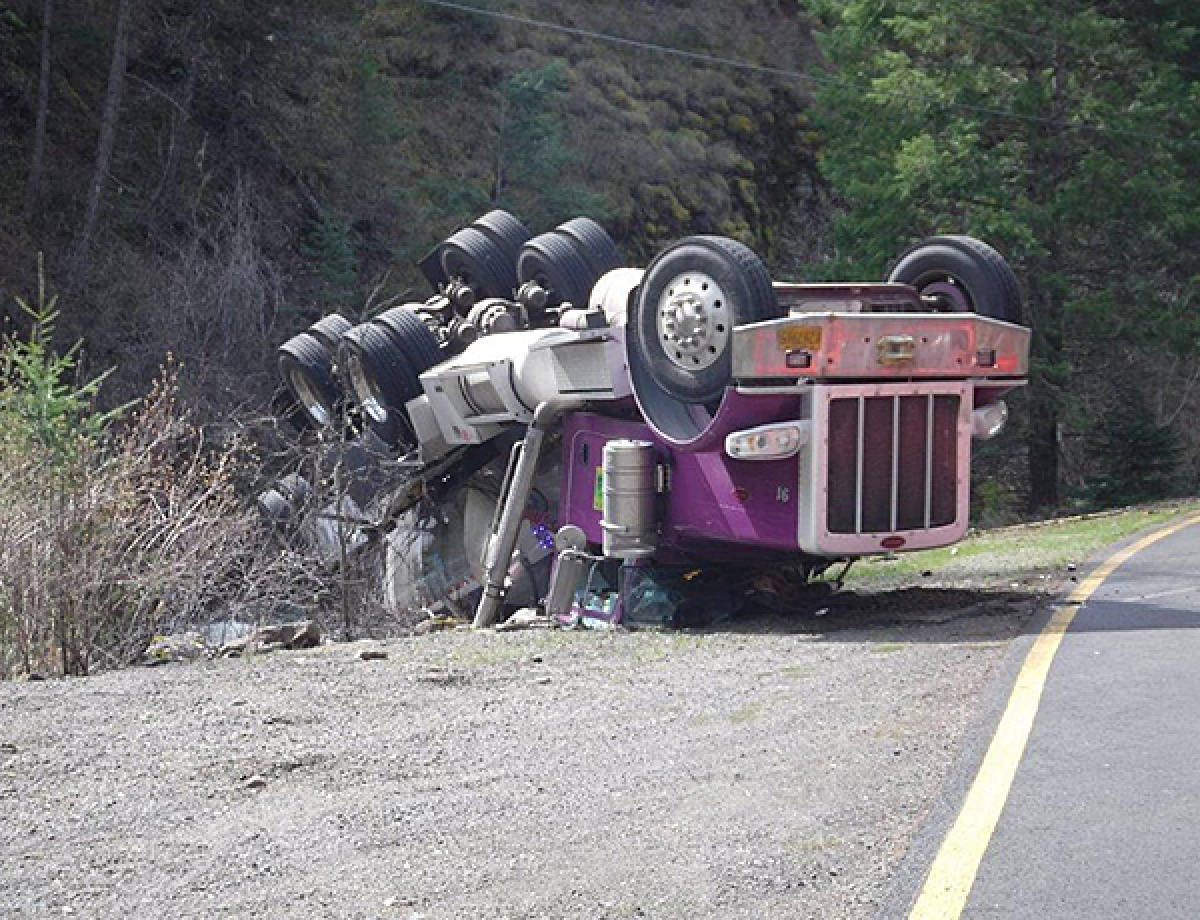Some 102,000 spring Chinook salmon smolts destined for the Imnaha River by way of a tanker truck failed to reach their destination on March 29 when the tanker crashed next to Lookingglass Creek near the Lookingglass Hatchery in northeastern Oregon, the Oregon Department of Fish and Wildlife reports. The location of the crash was, in a way, serendipitous. Almost 75 percent of the smolts landed in the creek, which is a tributary of the Grande Ronde River. Another 26,000 died in the incident.
An ODFW employee was driving the 53-foot truck when it rolled onto the passenger side after going around a tight curve in the road. The Union County Sheriff’s department responded to the incident, during which the driver received minor injuries. Responders were also able to contain small amounts of diesel fuel from entering the waterway.
Both the Grande Ronde and Imnaha Rivers are tributaries of the Snake River, which lessens the severity of the misplaced salmon smolts. But when a small percentage of those smolts return as adults in 2026 and 2027, ODFW biologists expect them to return to Lookingglass Creek rather than the Imnaha. This could lead to between 500 and 900 fewer adult chinook coming back to the Imnaha during these years, according to ODFW. On the bright side, the agency expects around 350 to 700 of the 77,000 smolts spilled into Lookingglass to return to the creek around the same time.
The truckload of spilled smolts also represented only about 20 percent of scheduled hatchery releases on the Imnaha this year, meaning that some 400,000 more Chinook smolts are destined for the same spot. (This figure matches the 2023 hatchery smolt release goal for the Imnaha, according to the release program’s 2023 annual operating plan.)
The Nez Perce Tribe and the Confederated Tribes of the Umatilla Indian Reservation are co-managers of the fishery. NPT also responded to the scene and helped ODFW collect, count, and scan every one of the 26,000 dead fish for “Passive Integrated Transponders.” PITs are microchips that essentially give an individual animal a barcode for ease of tracking.
“Information collected from PIT tags, including those that weren’t released, will help ensure the best possible estimates of survival and future adult returns,” the ODFW press release reads.

The Imnaha spring Chinook run is often impacted by early fishing closures to protect dwindling wild populations. For example, an early closure occurred in the first week of July 2023. The Imnaha is popular with anglers, hence the aggressive stocking program to supplement numbers. That supplementation plan has occurred since 1982 as part of the Lower Snake River Compensation Plan program.
Read Next: Breach or Die: It’s Time to Free the Lower Snake River and Save Idaho’s Wild Salmon
All told, the incident won’t have too severe of an impact on the overall health of hatchery Chinook runs in the Lower Snake.
“We are thankful the ODFW employee driving the truck was not seriously injured,” said ODFW’s eastern Oregon fish hatchery coordinator Andrew Gibbs. “This should not impact our ability to collect future brood stock or maintain full production goals in the future.”
